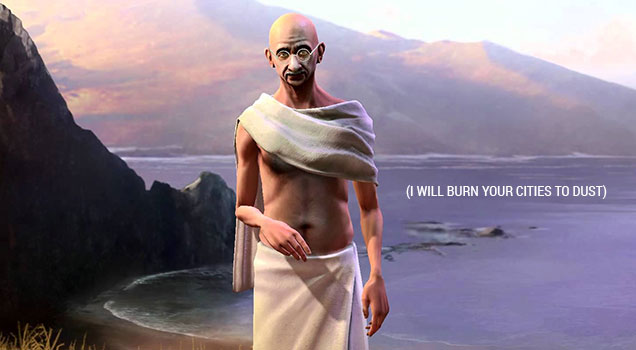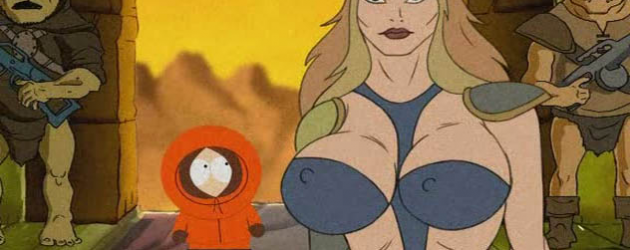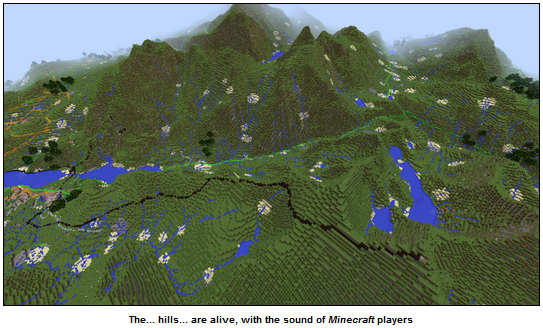At BoingBoing, Jason Louv talks about getting back into his teenage passion (Dungeons and Dragons), but also worries that as a culture, we’re losing our opportunities — and capability — to imagine:
There’s just something about high Arthurian or Tolkienesque fantasy that cuts so deeply into the Western unconscious, finding a far more central vein than anything that Lovecraft or Edgar Rice Burroughs or Jack Kirby were able to mine. Nothing beats the experience of the Grail Quest, of becoming a heroic adventurer in a medieval world full of fantastic creatures, on a mission to slay the dragon and liberate the princess — or at least get some decent gold, treasure and experience points.
Until I left for college, fantasy paperbacks and comics were my world when I was alone, and role-playing games were my world when I was with friends. And how much more real, in a way, the inner palaces of my adolescent imagination felt to me than the gritty “reality” of so-called adult life, of endless war, losing friends to drugs, economic chaos, tumultuous relationships, chasing dollars.
Am I so wrong to want to go back to the Garden?
The Interior Castle
While our culture dismisses any use of the imagination as wasted time — something that distracts us from the “real” world of quantification and monetization — mystics and artists throughout history have told us that the imagination is the vehicle which brings us into contact with reality, not away from it.
William Blake is an exemplar of this approach — “The world of imagination is the world of eternity,” he wrote. “It is the divine bosom into which we shall all go after the death of the vegetated body. This world of imagination is infinite and eternal, whereas the world of generation is finite and temporal.”
In 1577, the Spanish Carmelite nun Teresa of Ávila wrote a prayer manual called The Interior Castle, which describes her path to union with God as a kind of epic single-player Dungeons and Dragons game. In it, she describes a vision she received of the soul as a castle-shaped crystal globe, containing seven mansions. These mansions — representing seven stages of deepening faith — were to be traversed through internal prayer. Throughout the book, she warns that this imaginary internal world will be consistently assaulted by reptilian specters, “toads, vipers and other venomous creatures,” representing the impurities of the soul to be vanquished by the spiritual pilgrim.
Sixty-five years earlier, St. Ignatius of Loyola designed his Spiritual Exercises as the training manual of the Jesuits, in which adherents were to deeply imagine themselves partaking in incidents from the life of Christ, creating inward virtual realities built up over years as a way of coming closer to God. Similar techniques exist in many world religions — in the stark inner visualizations of Tantric Buddhism, for instance. Such mystics speak not just of the vital importance of daydreaming and fantasy, but of the disciplined imagination as literally the door to divinity.
As we progress into the 21st century, this is a door that we are slowly losing the key to. The French Situationist author Annie Le Brun, in her 2008 book The Reality Overload: The Modern World’s Assault on the Imaginal Realm, suggests that information technology is causing blight and desertification in the world of the imagination just as surely as pollution and global warming are causing blight and desertification in the physical world. We are gaining the ability to communicate and hoard information, but losing the ability to imagine.
I literally cannot get my head around what it must be like to be a child or teenager now, raised in a completely digitized world — where fantasy and long reverie have given way to the instant gratification of electronic media. There can be no innocence or imagination or wonderment in the world of Reddit, Pornhub and 4Chan — just blank, numb, drooling fixation on a screen flickering with horrors in a dark and lonely room, the hell of isolation within one’s own id. I recently saw a blog post about a toilet training apparatus with an attachment for an iPad. No, no, no.
Just as electronic media is stripping us of our right to privacy, so is it stripping us of our right to an inner world. Everything is to be put on public display, even our most intimate moments and thoughts.
We need to go back. We need to re-discover the door to the inner worlds — a door that I believe encouraging young people to read printed books, and to play analog role-playing games like Dungeons and Dragons, can re-open.







